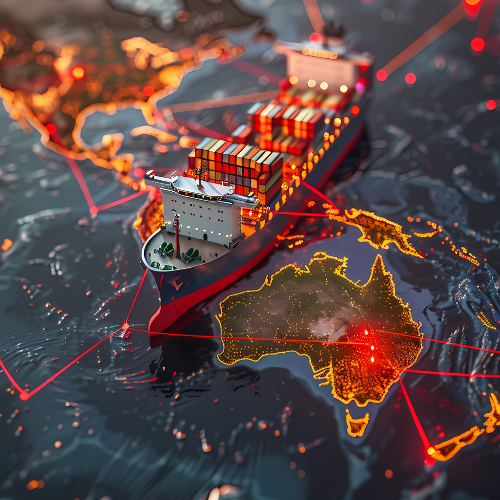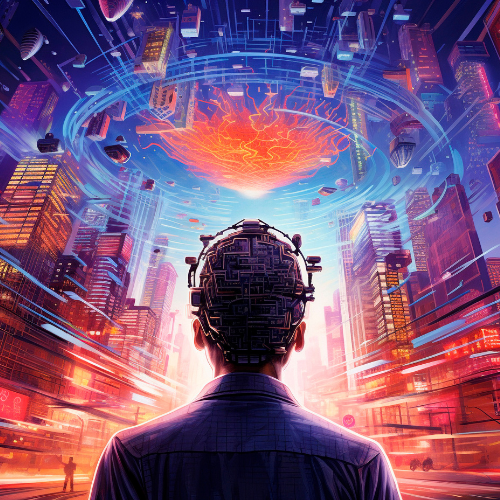For centuries, power has been defined by territory. Nations were built on land, their influence measured by borders, natural resources, and physical infrastructure. This foundation is now cracking. A new, non-geographic form of sovereignty is emerging, built not on soil, but on code, community, and capital. We are entering the era of The Sovereignty Wars, a silent but intense conflict where digital platforms, decentralized autonomous organizations (DAOs), and virtual world economies are challenging the very definition of a nation-state. The next superpower may not control a single acre of land, but it will command the loyalty of millions of global citizens and control trillions in digital assets.
The Rise of the Digital Nation-State
The concept of a nation is evolving from a geographic entity to a voluntary, opt-in community bound by shared values, economic interests, and digital identity.
Platform States: Companies like Discord, Telegram, and X (formerly Twitter) have evolved beyond communication tools into de facto public squares and governance platforms for digital communities. These platforms host nations of people who share citizenship in a physical country but derive their primary social, economic, and cultural identity from their digital affiliations. These are “states of mind” with their own laws (community guidelines), economies (creator payouts), and diplomatic relations (platform integrations).
Network States: Pioneered by figures like Balaji Srinivasan, the “network state” is a highly aligned online community with a collective capacity for action that crowdfunds territory around the world. It starts as a digital community, accumulates economic power through crypto-economics, and eventually negotiates for physical diplomatic recognition. It is a nation built in reverse: community first, land second. Projects like Praetoria and Zuzalu are early experiments in creating these long-term, pop-up communities with their own social contracts.
Decentralized Autonomous Organizations (DAOs): A DAO is essentially a borderless, internet-native corporation with a built-in treasury and a constitution enforced by code. They represent a radical new model for collective action and governance. ConstitutionDAO, which nearly purchased a copy of the U.S. Constitution, and CityDAO, which is collectively purchasing and governing a parcel of land in Wyoming, are prototypes of this new form of digital-first civic and economic organization. They demonstrate that thousands of strangers from across the globe can pool resources and make collective decisions without a central government.
The Virtual Economy: From Pixels to GDP
The economies within these digital nations are no longer fictional. They are real, measurable, and rapidly scaling, creating a new layer of global commerce.
The Creator Economy: Valued at over $250 billion, the creator economy is a sovereign nation in its own right. Platforms like YouTube, TikTok, and Substack are the infrastructure, and the creators are the citizens who generate the GDP. This economy has its own currency (platform payouts, brand deals), its own class system (mega-stars vs. micro-influencers), and its own trade routes (cross-platform collaborations).
The Play-to-Earn (P2E) and Metaverse Economies: Games like Axie Infinity demonstrated that time spent in a virtual world could generate a real-world income for players in developing countries. While the P2E model has evolved, the principle remains: virtual assets have real value. In metaverse platforms like Decentraland and The Sandbox, virtual land parcels have sold for millions of dollars. Companies are establishing corporate embassies, and fashion brands are selling digital-only clothing. These are not games; they are emerging markets with their own property rights and economic cycles.
The Crypto-Native Financial System: This is the central banking system of the digital world. Built on blockchains like Ethereum and Solana, it operates 24/7, is globally accessible, and is largely outside the direct control of any single government. Stablecoins like USDC act as the reserve currency for these digital nations, while decentralized exchanges (DEXs) and lending protocols form the backbone of their financial infrastructure.
The Clash of Jurisdictions: Regulating the Borderless
This rise of digital sovereignty creates an inevitable and escalating conflict with traditional nation-states. The core battlegrounds are regulation, taxation, and legal enforcement.
The Regulatory Battlefield: How does the U.S. Securities and Exchange Commission (SEC) regulate a DAO that has contributors from 50 countries and is governed by code deployed on a decentralized server network? How does the European Union enforce its Digital Services Act on a platform built on a permissionless blockchain? These are unanswered questions that are leading to a regulatory arms race.
The Tax Evasion Dilemma: As more economic activity moves into virtual worlds and is transacted in crypto-assets, physical nations face the threat of massive tax base erosion. How do you tax the income from selling a virtual sword to someone in another country when the transaction occurs on a blockchain that provides anonymity? Tax authorities worldwide are scrambling to develop new frameworks, but they are perpetually behind the innovation curve.
The Legal Identity Crisis: In a physical nation, your passport is your identity. In a digital nation, your crypto wallet is your identity. This creates a fundamental clash. If a crime occurs within a DAO or a virtual world, which country’s laws apply? Who has the jurisdiction to investigate? The concept of legal personhood is being stretched to its limits.
The Corporate “Diplomatic Corps”
In this new landscape, multinational corporations are no longer just corporate entities; they are acting as quasi-states, engaging in their own form of digital diplomacy.
Meta’s Metaverse Ambition: When Meta (formerly Facebook) announced its pivot to the metaverse, it was effectively declaring its intention to build a digital nation on a scale rivaling physical countries. It is developing its own currency (Facebook Pay, with potential for a future Diem-like stablecoin), its own legal system (Terms of Service), and its own infrastructure (VR hardware and software).
Apple’s Walled Garden: The Apple App Store is a sovereign digital territory with absolute control over its economy. It levies a “tax” (the 30% commission), sets and enforces its own laws (App Store guidelines), and has the power to banish entities (removing apps). Its decisions can make or break businesses, giving it a power that rivals many regulatory bodies.
Case Study: The Nation of Zuzalu – A Two-Month Sovereign Experiment
In 2023, a pop-up city community called Zuzalu was established in Montenegro. Organized by Ethereum founder Vitalik Buterin and others, it brought together 200 core residents for two months to experiment with network states. Zuzalu had its own temporary visa agreement with the Montenegrin government, its own digital identity and currency system, and a culture focused on longevity, crypto, and public goods funding. It was a live-fire test of how a digital community could manifest physically, manage its own affairs, and interact with a traditional nation-state. While temporary, it provided a crucial proof-of-concept for the network state model.
Strategic Outlook: The Future of Power in a Digital World
The Sovereignty Wars will intensify over the next decade. We can anticipate several key developments:
The “Digital Seat” at the UN: We may see the emergence of a new class of international representation for globally significant digital platforms or DAOs that meet certain thresholds of economic activity and community size.
The Rise of Digital Passports: Nations may begin to formally recognize blockchain-based digital identities as a supplement to physical passports for specific online transactions and governance participation.
The Balkanization of the Internet: The current, relatively open global internet may fracture into “digital spheres of influence” controlled by major platforms (the American sphere, the Chinese sphere) and sovereign blockchain networks, each with its own rules and currency.
Conclusion: The New Social Contract
The Sovereignty Wars are forcing a fundamental renegotiation of the social contract. For 500 years, the contract was between a government and the people within its borders. Today, individuals are signing new, voluntary contracts with digital platforms, DAOs, and virtual communities that often command more of their time, data, and economic activity than their country of birth.
The leaders of traditional nations face a choice: fight a losing battle to exert absolute control over the digital frontier, or adapt. The most forward-thinking governments will learn to engage with these new digital entities as partners, creating regulatory sandboxes and developing frameworks that protect citizens while fostering innovation. The future of global power will not be a map of borders, but a network of nodes. The ultimate victory will belong not to those with the largest army, but to those who can build the most compelling, prosperous, and resilient communities—wherever they may exist.











